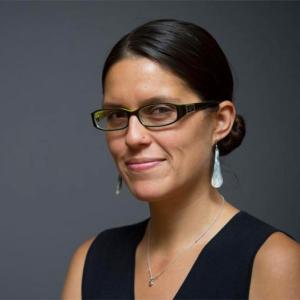With generous support from The Mellon Foundation, this two-week institute centered migration studies as a multidisciplinary field of study and as heterogeneous movements that often reflect, respond to, or are shaped by racism, xenophobia, and violence.
As a field, how does migration studies map and respond to this violence? What potential does migration studies hold for effectively documenting this violence and for mapping alternative possible futures?
Cartographies of Racial Justice Beyond Borders: Territories of Dispossession and Migration
Troubling the notion of the United States as a "nation of immigrants," the 2021 summer institute participants considered the contours of internal and external migration globally, forced and voluntary, across time and space. The European conquest of the Western hemisphere is an ongoing project of the dispossession of Native sovereignty entangled with African enslavement.
In the contemporary moment, racism, dispossession, and migration are intertwined in the apparatus of modern-day deportations, which call into question the very definition of the border and long histories of border crossing. Human migration spurred by economic distress, climate crisis, political conflict, and militarism continues to shape the asymmetries of who has a right to the future.
Faculty Co-leads
What does a map of the future look like? The institute's 30 participants to engage in critical race theory, global migration studies, and speculative design to map the terrain of the future of global racial justice. The Migrations initiative and the Mario Einaudi Center for International Studies hosted the inaugural Migrations summer institute, “Cartographies of Racial Justice Beyond Borders: Territories of Dispossession and Migration.”
With a focus on borders as geopolitical constructs, the participants collectively considered the long history of planetary human migration, the timeline of racial capitalism, and the requisite geographies of dispossession. Participants were mentored, working in groups to create a speculative design digital atlas and podcast. Inspired by the urgent work of critical geographers and afro-futurists, mapping racial justice will engage horizons of abolitionism, Indigenous futurisms, decoloniality, and Black feminisms. Themes included decolonial cartography, queer ecologies, climate justice, immigration rights, digital borderlands, and global surveillance.
The World We Became: Map Quest 2350, A Speculative Atlas Beyond Climate Crisis
Participants from the 2021 summer institute—a collective of artists, poets, academics, curators, architects, and activists—tackled how racial justice and climate crisis are entangled in this essay and speculative cartography experiment. Published in Asian Diasporic Visual Cultures and the Americas, the project maps global ecological crises and shared Black, Asian, Pacific, Middle Eastern, Latin American, Caribbean, and Indigenous futures with visual and audio components presenting a planetary vision of the year 2350 as an underwater future in ruins.
Overview
Participants were advanced graduate students, postdoctoral fellows, and early career scholars. They came from a large swath of disciplines and worked in dialogue with each other. Over the two weeks, participants:
- Produced a collaborative digital map and podcast
- Attended public humanities workshops
- Got feedback and mentorship on a co-written curatorial essay from summer school faculty and participants
- Conversed with leading migration and racial justice experts through keynote and small group sessions
- Created curricular design on the relationship between racism, dispossession, and migration
Participants
Atif Khan, Austin Kocher, Christin Washington, Judith Salcido, Rewa Phansalkar, Ryan Persadie, Anisa Jackson, Elspeth Iralu, Erica Violet Lee, Hashem Abushama, Nisrin Elamin, Randa Tawil, Citlali Sosa-Riddell, Esmeralda Arrizón-Palomera, Kelsey Moore, Lydia Macklin Camel, Mónica Ramírez Bernal, Nancy Morales, Amanda Pinheiro, Ana Ozaki, André Nascimento, Christopher Roberts, Essah Díaz, Reighan Gillam, Juhwan Seo, Priyanka Sen, Andrea Chung, Tauren Nelson, Heidi Amin-Hong
Our annual summer institute immerses early-career scholars in the study of racism, dispossession, and migration in a collaborative space. Each year, the institute addresses a new topic under the leadership of a faculty researcher.


